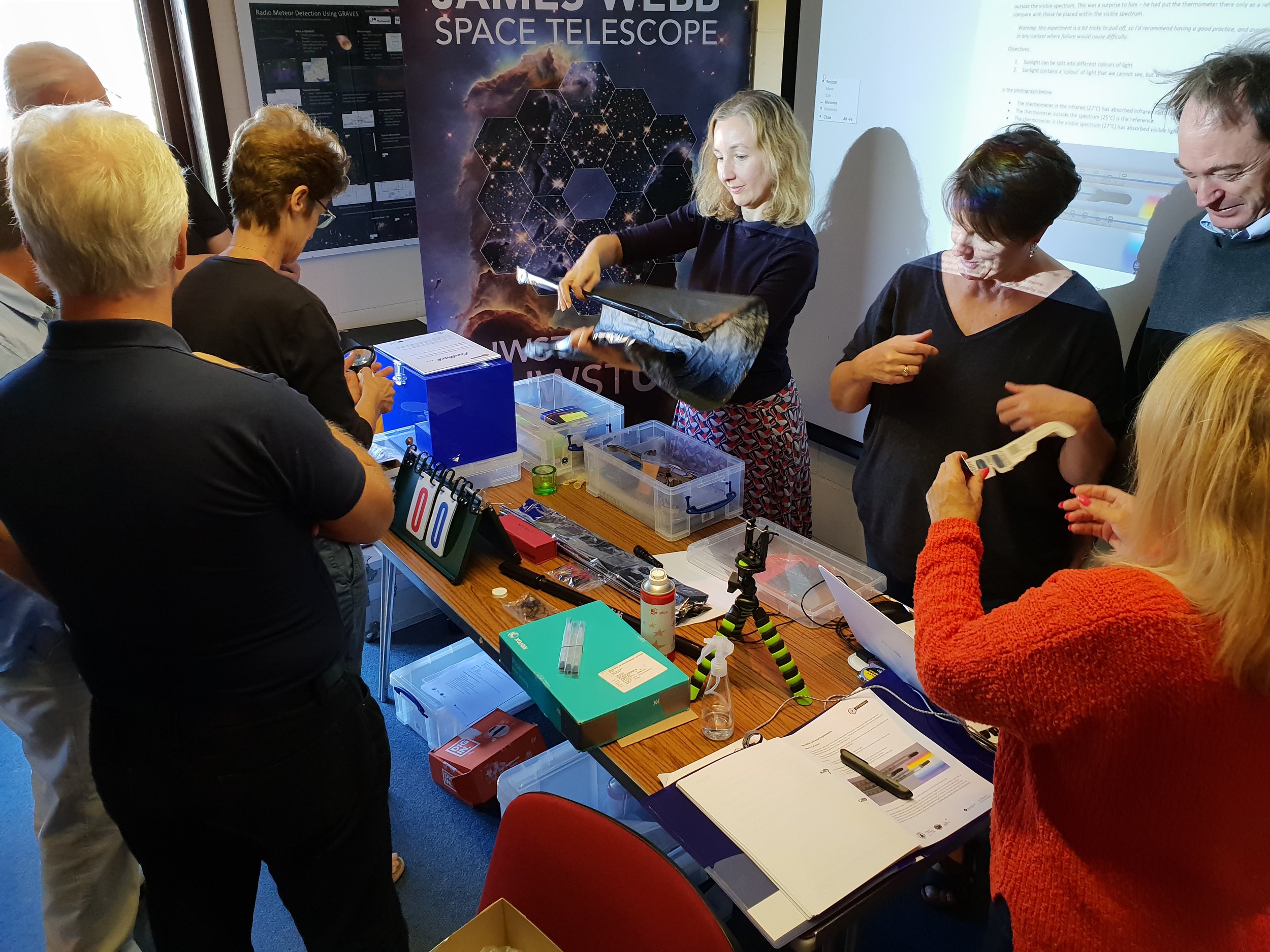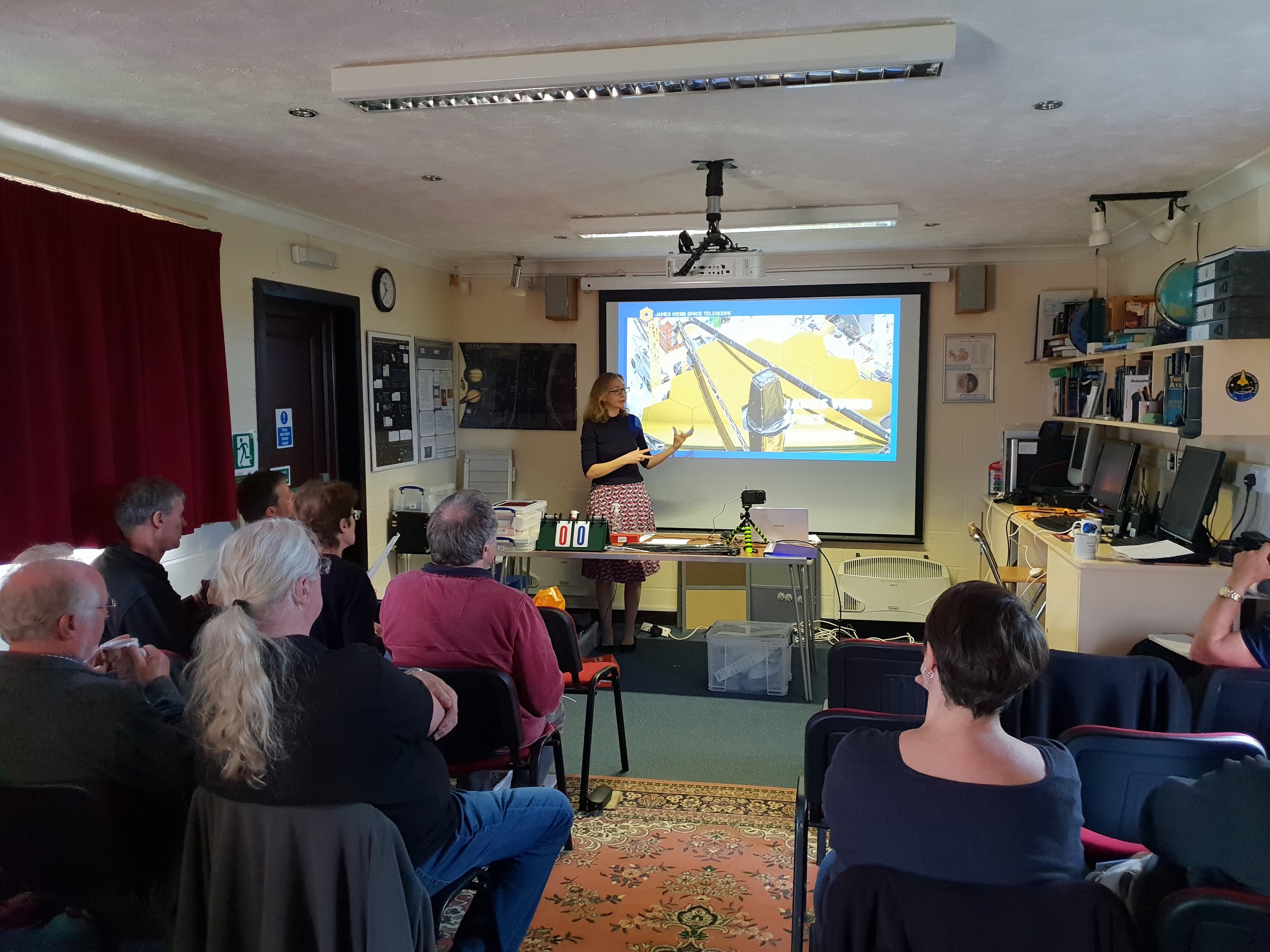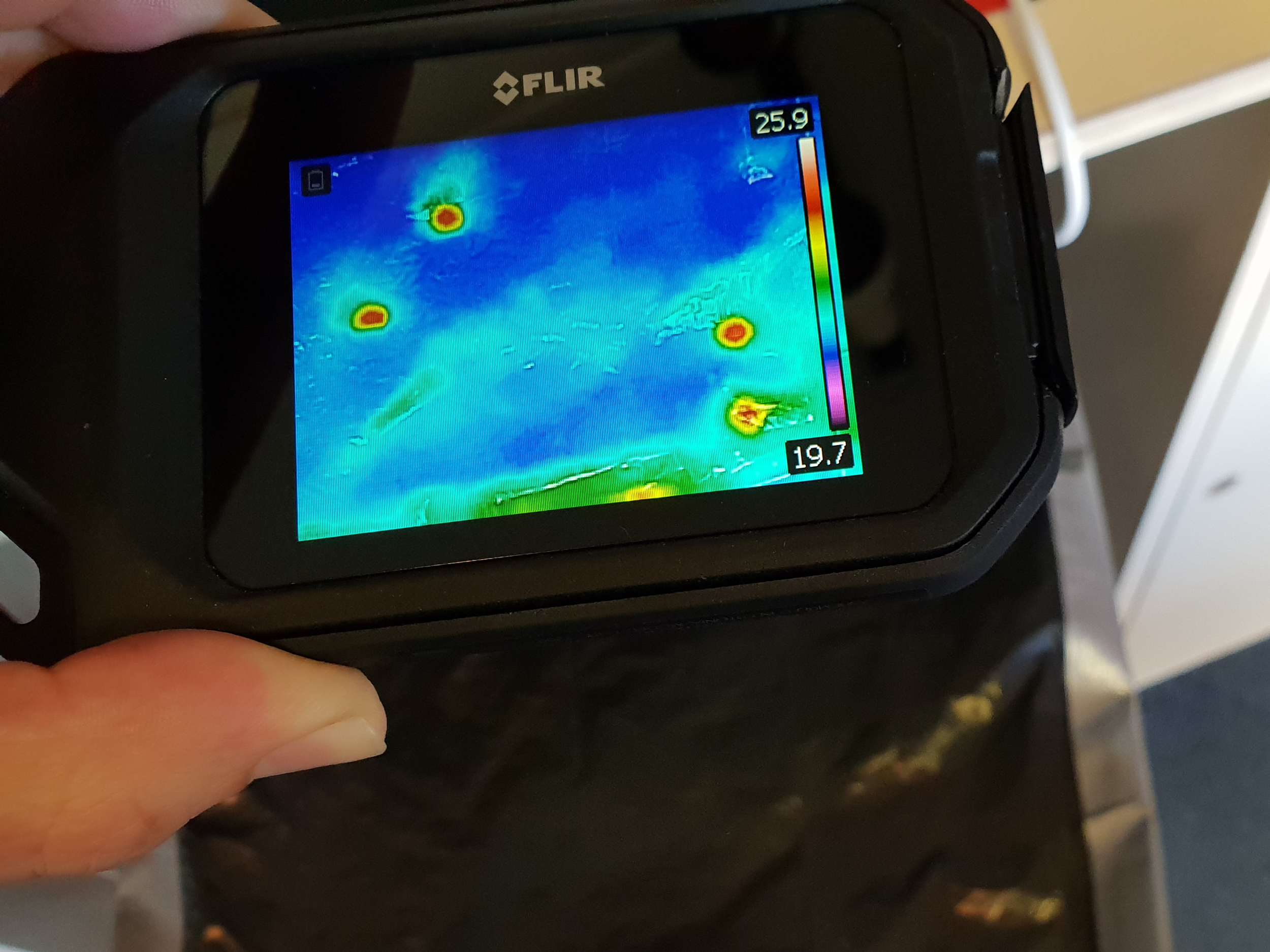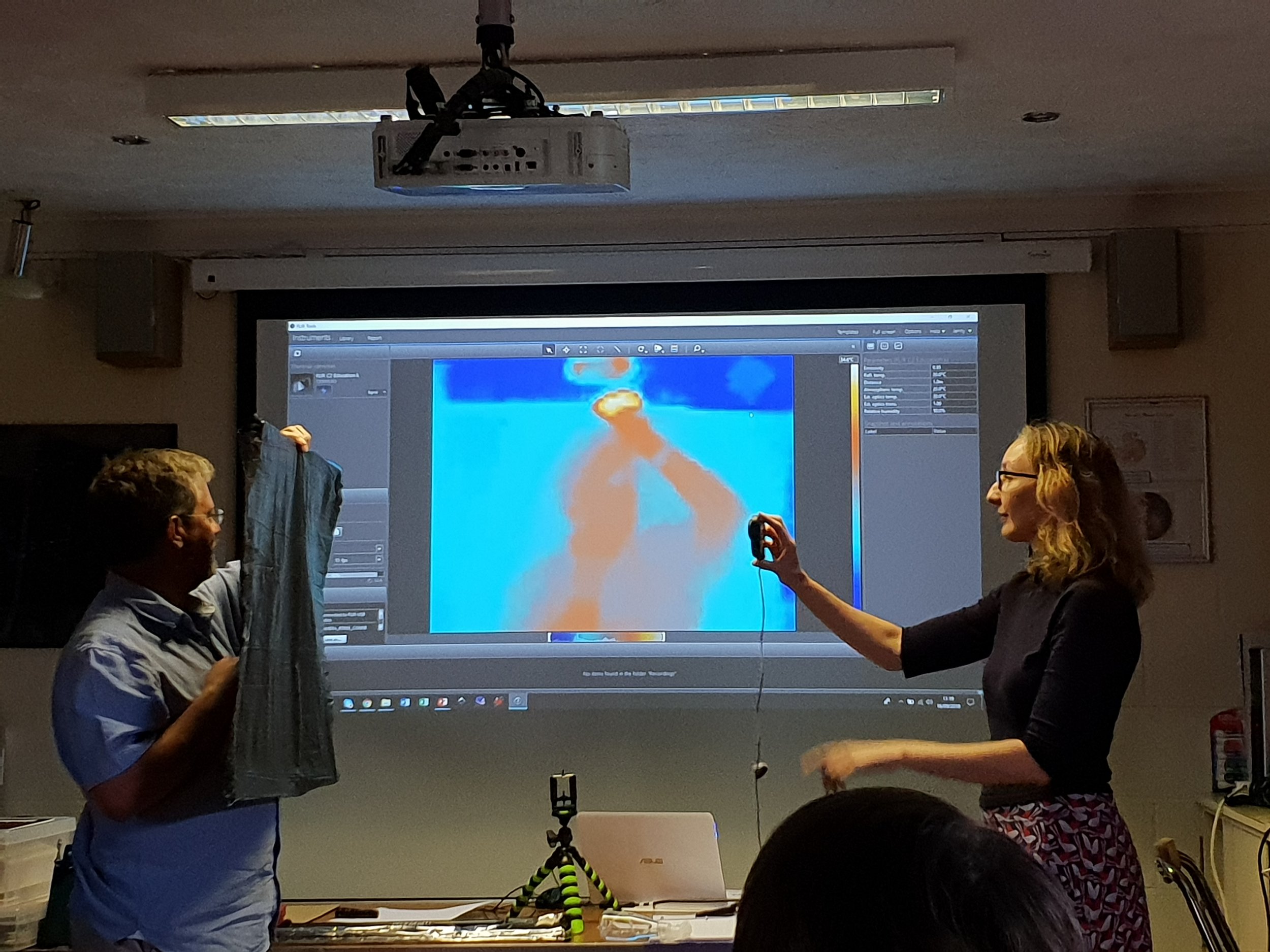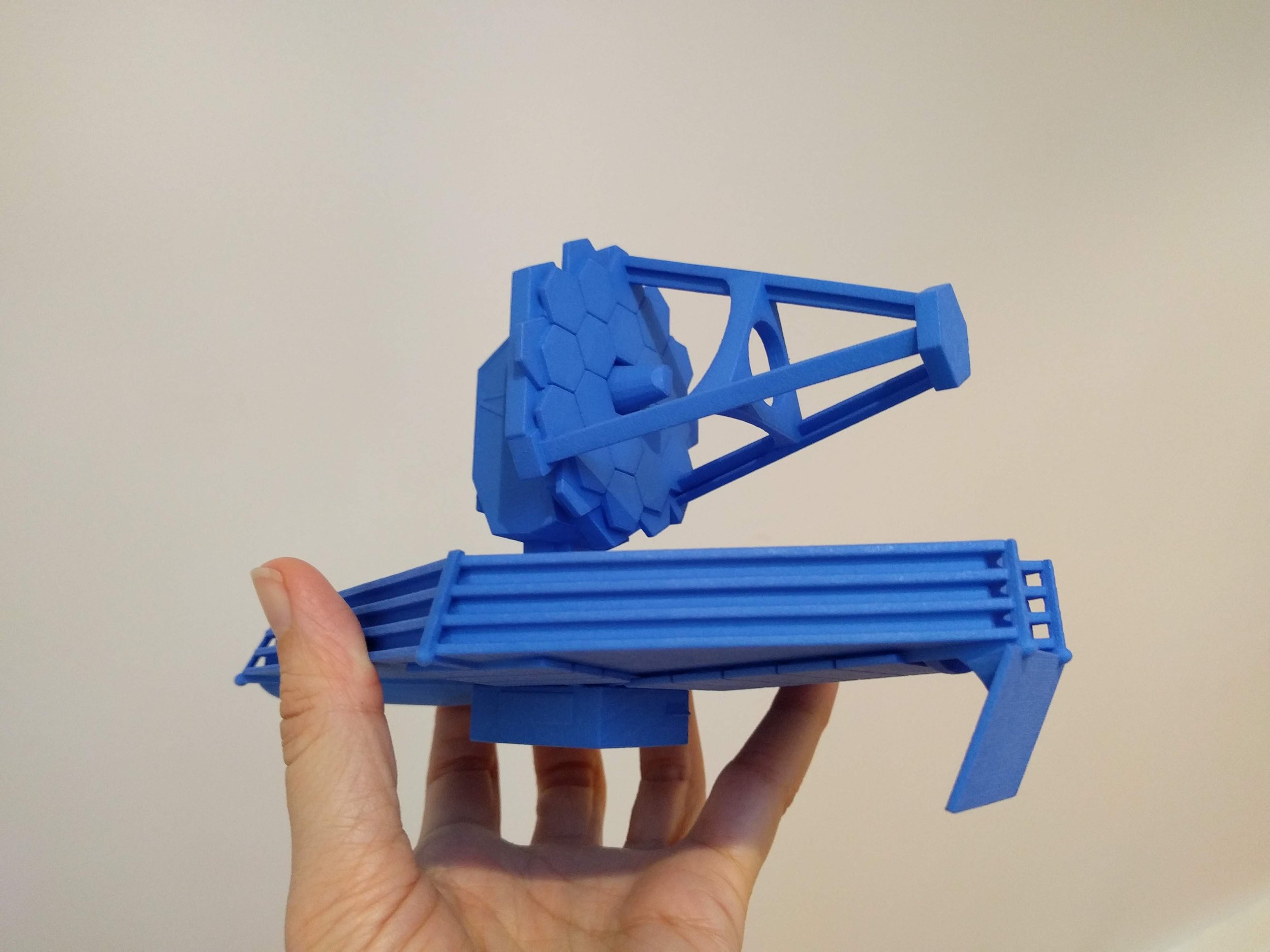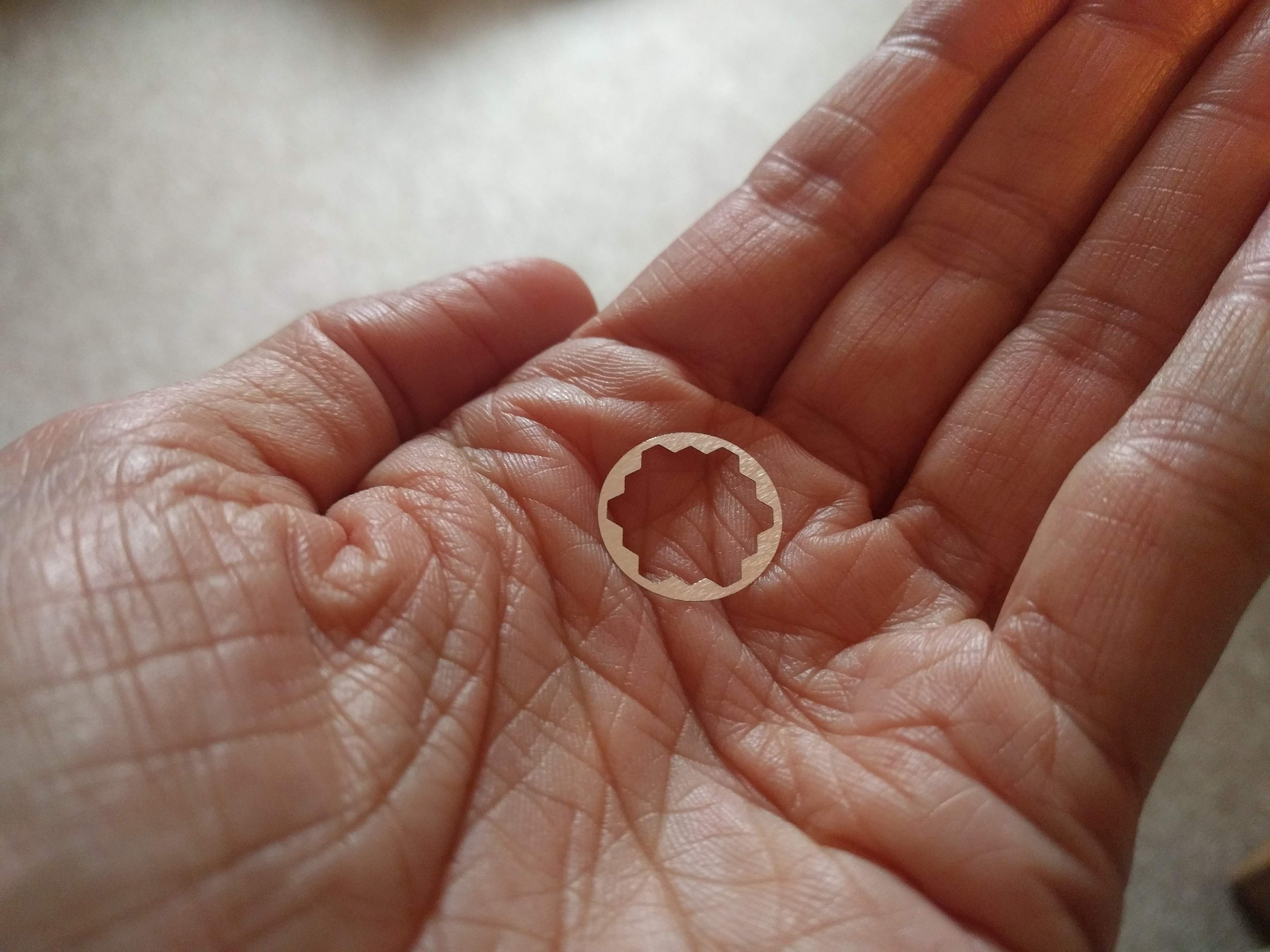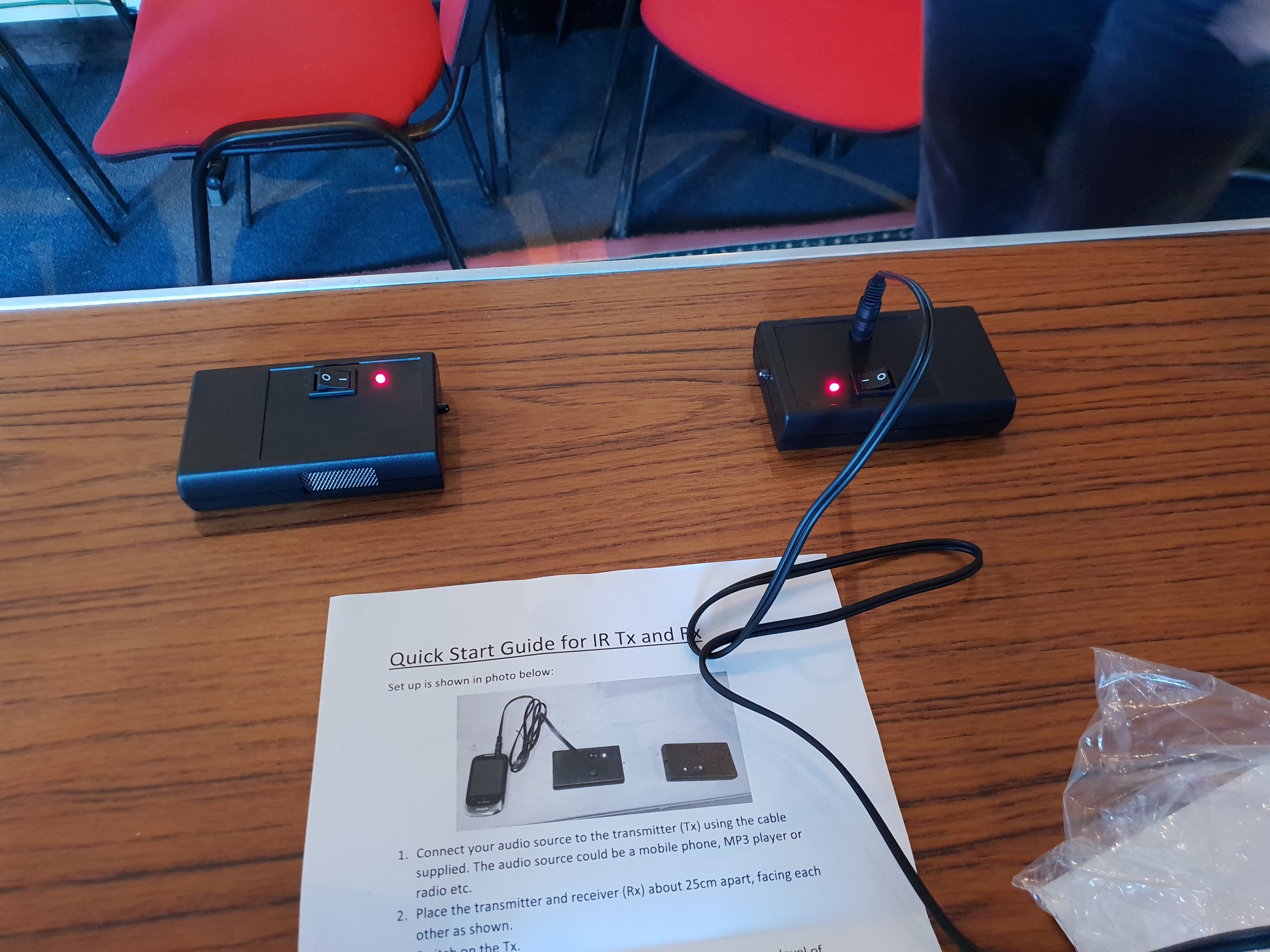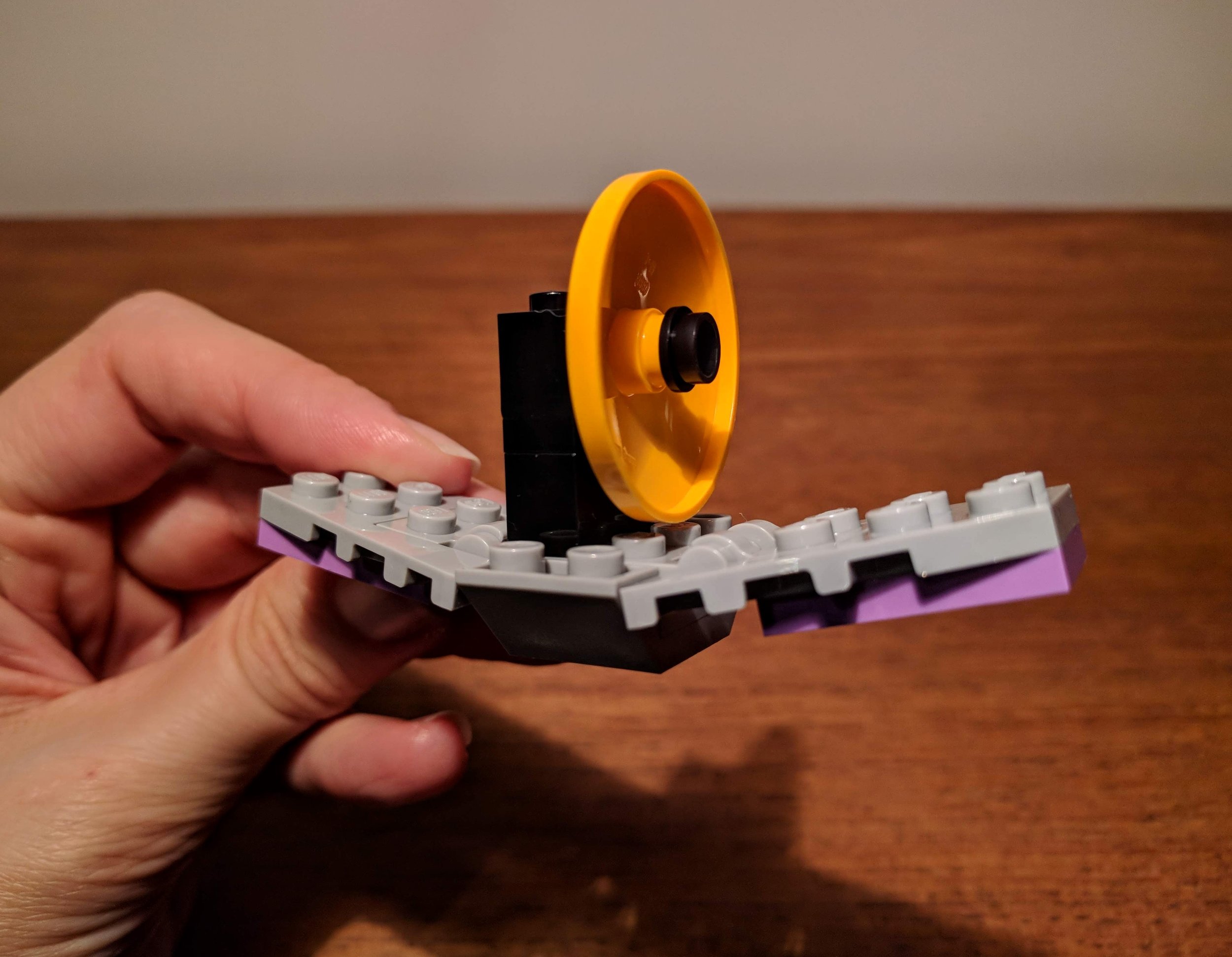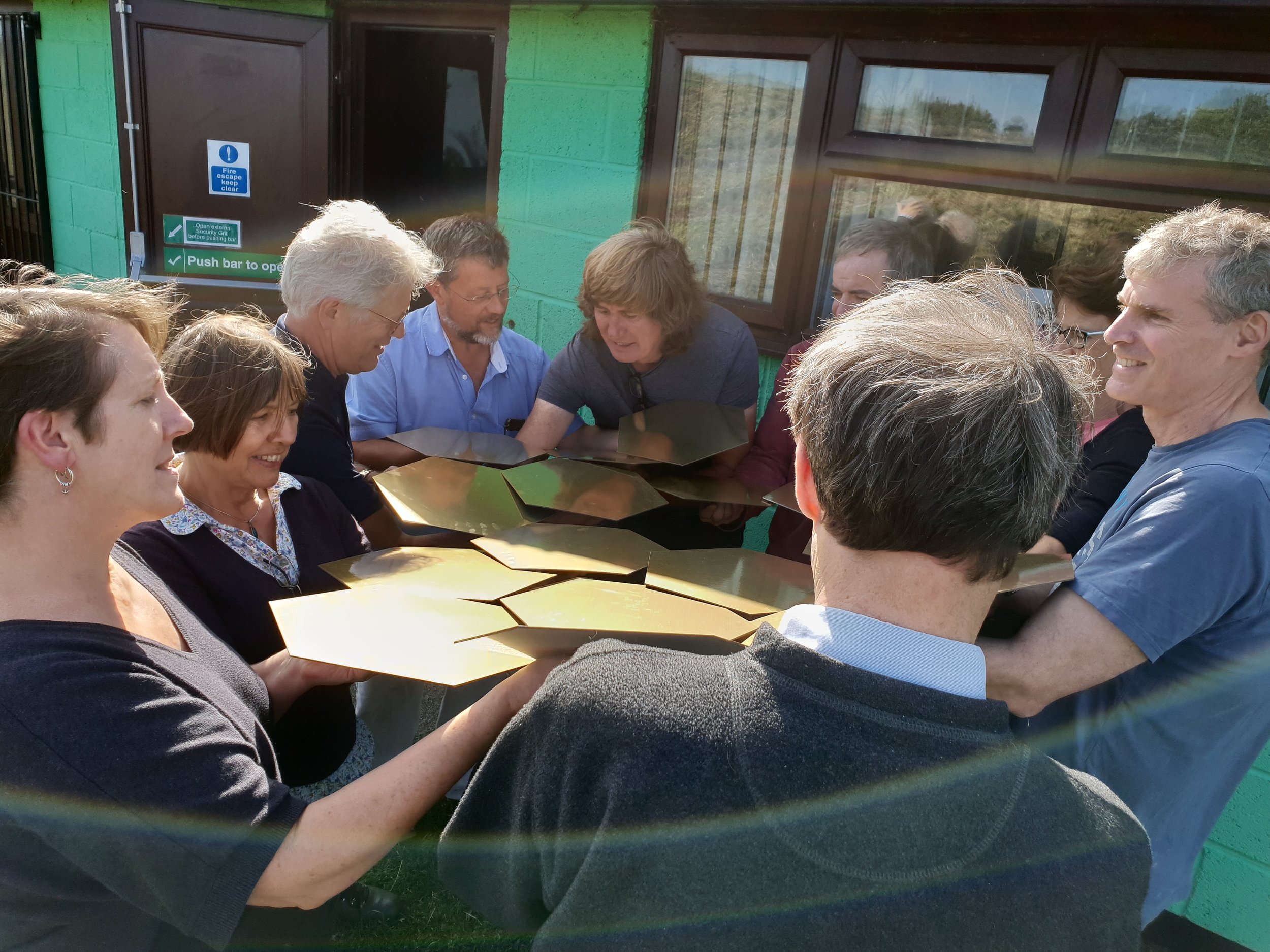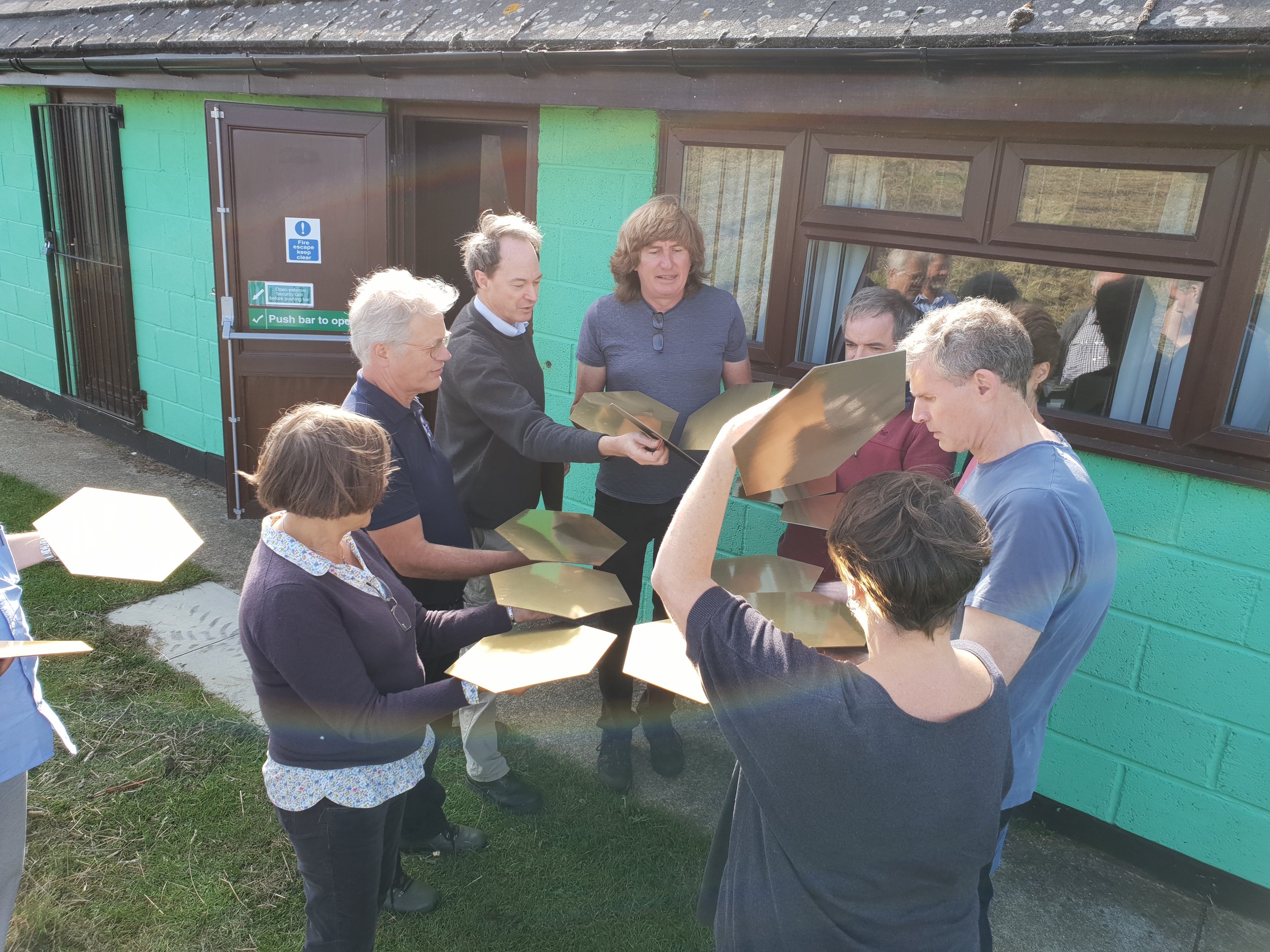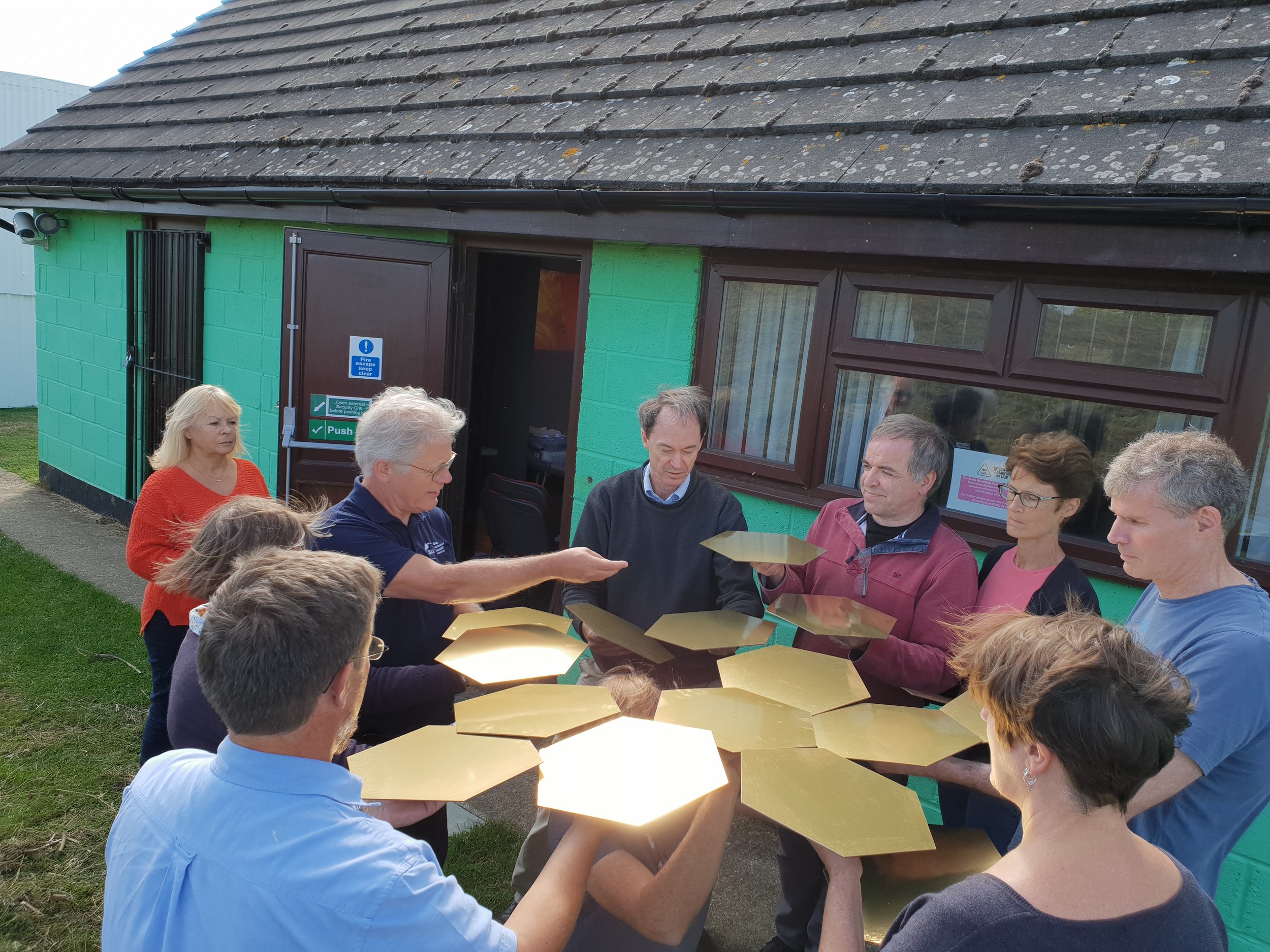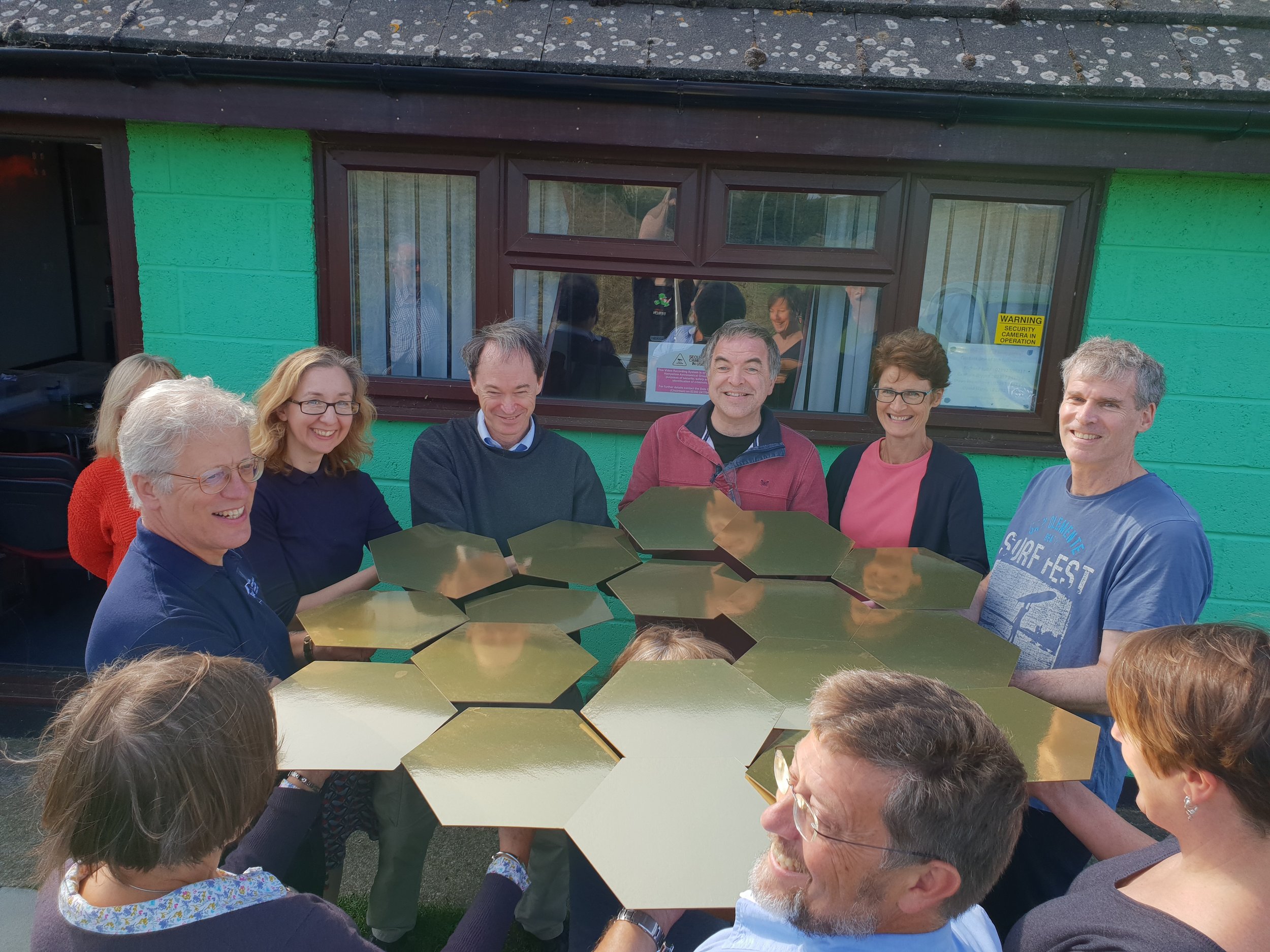Supporting Amateur Astronomical Societies’ outreach activities across the UK
What is AstroBoost?
AstroBoost is an ongoing, multi-phase project providing communications resources and training to amateur astronomical societies in the UK. The project aims to support societies’ aspirations to extend and improve their outreach activities.
AstroBoost also aims to raise awareness of the important outreach carried out by astronomical societies, and to foster links with the wider science communication community. These groups are embedded in their local communities, and sited widely across the UK including areas remote from any University or Science Centre. Many children in the UK will take their first look through a telescope thanks to an amateur astronomy society visiting their school, scouting group, or at a public event run by a society.
The project was orginally concieved as a thank you for many years of support from the societies that supported Winchester Science Centre’s free-entry Stargazing Nights. With up to eight societies in attendance (in addition to other contributors), over fifty volunteers, many telescopes, and society display stands, these events would never have been possible without their contribution.
AstroBoost project resources and reports are available for free download from the bottom of this page.
Phase 1 (2018-2019) - 3 local, active societies; survey and pilot project, developing an effective model for future projects
The first AstroBoost project was headed by Royal Astronomical Society and funded by an STFC Spark Award. It was run in partnership with the UK Webb Campaign, Hampshire Astronomical Group, Guildford Astronomical Society and Newbury Astronomical Society. The Federation of Astronomical Societies and the Southern Area Group of Astronomical Societies were also involved in an unofficial capacity. This pilot project involved a regional survey, and provision of training/resources relating to the James Webb Space Telescope.
The survey collected data from all 31 societies in the Southern Area region. To the knowledge of the FAS and SAGAS this was the first time astronomical society outeach activity had been surveyed. It showed that almost all societies highly valued outreach (most having this stated as an aim of the society), with small teams carrying out large amounts of outreach to a wide variety of audiences.
The three partner societies guided the project to ensure the resources would be suited to their needs. Kits of resources relating to the James Webb Space Telescope were developed to a equipment budget of £1,500 per society. The societies requested a flexible Powerpoint show for ages 8-12yr, with demonstrations that could also be used as hands-on activities in other contexts. The key item was a Flir-C2 infrared camera. Other items included a 3D-printed model of the telescope, give-away mini lego-Webb kits, a pull-up banner, and a large jigsaw of Webb’s primary mirror. Resources were distributed in sturdy, weather-proof boxes, and included everything required for the activities, from spare batteries to a powerpoint clicker.
Training took place at Hampshire Astronomical Group’s Clanfield Observatory (the photographs on this page are from this day). Events included a talk by a Webb scientist, a run through of the AstroBoost Powerpoint show, and general science communication training topics. Attendees also enjoyed a tour of the Observatory. Thanks to Hampshire Astronomical Group for letting us use their venue free of charge.
The survey, written resources, Powerpoint and final report including project evaluation data can be downloaded free from the Royal Astronomical Society .
I also wrote about the training day in my blog.
“Previously most of our outreach activities involved PowerPoint presentations, or stargazing evenings, and we had little in the way of hands-on activities that could be used by the general public at events. This project has enabled us to deliver much more interactive and participative events, and it has been very rewarding to see our audiences so enthusiastic & engaged.”
Phase 1 extension (2019-2021) - 9 societies already active in outreach
In response to the success of the initial project, the UK Webb Campaign ran an extension project involving a further nine astronomical societies from across the UK. The selected societies already had active outreach programmes and were ready to make excellent use of their new resources. This extension project was again funded by the STFC. The original plan was to bring the societies to Royal Observatory Edinburgh in March 2020 for training, this to include meeting Webb scientists and engineers face-to-face. Unfortunately the Covid-19 pandemic meant that the event had to be cancelled at short notice, and it was later moved online. We still hope to bring the society members to Edinburgh for an additional training event when this is possible.
The nine societies each received a resource kit containing training documents and the most useful/popular items from the Phase 1 kit, including the Flir-C2 infrared camera.
Training was carried out on Zoom. Events included talks from a Webb scientist and engineer, and talks/activities relating to Science Communication, including an introduction to cognitive load theory and practical tips for reducing load. Society members also took the opportunity to share additional resources, skills and their experience with each other.
This project is ongoing, evaluation data will be available soon.
Phase 2 (proposed) - 16 societies in geographically-isolated regions
This phase was originally planned for 2019-20, but was put on hold due to the pandemic.
This scaled-up version of AstroBoost will work with four clusters of societies in geographically-isolated regions, where audiences are likely to be less well-served by other organisations. The societies all serve economically deprived areas within these regions (IMD 1-2).
Activities will include training, inter-society networking, and public events, all delivered at locations central to each cluster. The theme will be “Giant Planets in our Solar System and Beyond” and will include new images and data from Webb. Interpretation of data will be supported by Webb scientists who have early access to the telescope. Activities will be designed (where possible) to be shared online with additional societies and other organisations.
This new phase of AstroBoost is planned to be run in partnership with the UK Webb Campaign and the Europlanet Society.
Download AstroBoost resources
I would love to hear if you use any of these resources; tracking impact beyond the stated project objectives is useful for future funding bids.
AstroBoost survey (pdf) - outreach activity, aspirations and barriers for 30 societies in the south of England (2019)
AstroBoost project report (pdf) - what we did, and what we learned about running this type of project
AstroBoost pilot project written resources (zip) - the demo-led show script, how to run the activities, and general presenter tips
AstroBoost extension project resources (pdf) - booklet including updated activities designed for more-flexible use
AstroBoost Powerpoint presentations - please email to request this resource
Pilot project resources are also available from the Royal Astronomical Society website.
If you would like further information about the resources, or to let me know how you’ve used the resources, please get in touch by email.



